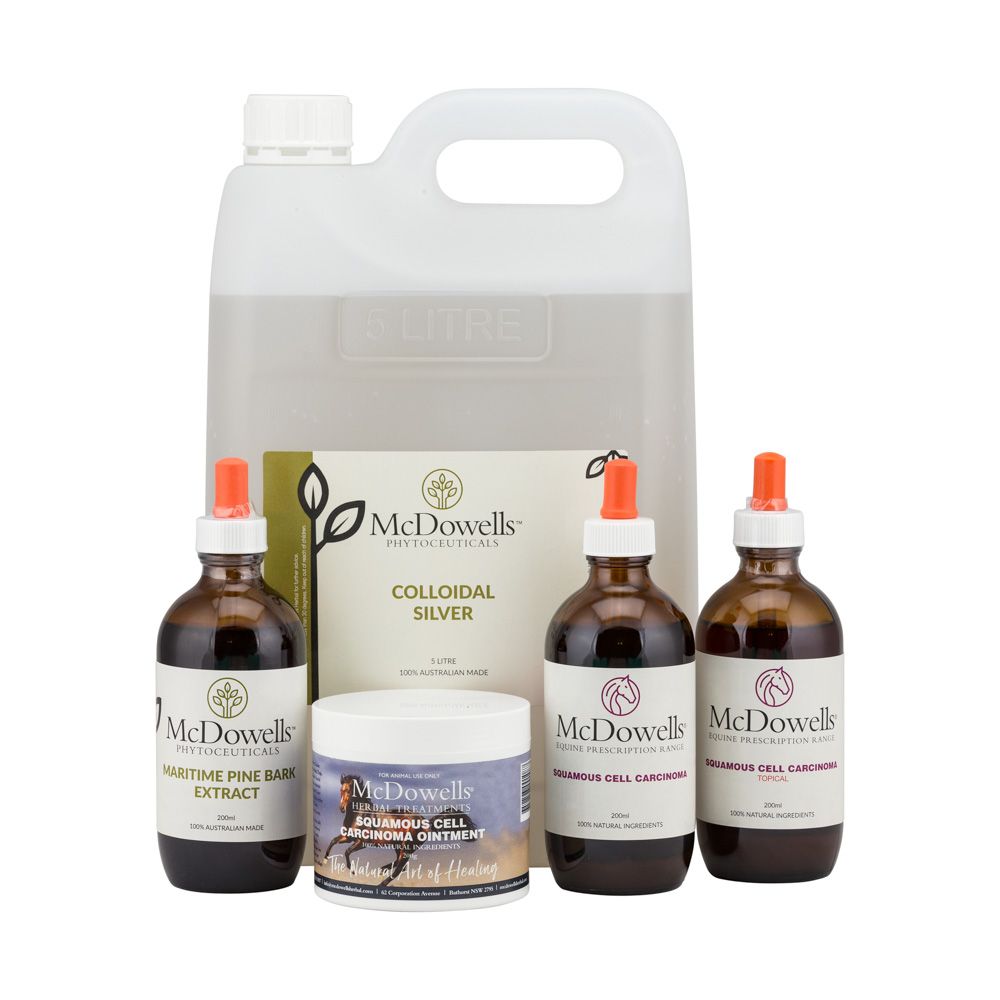Squamous cell carcinoma is the 2nd most common tumor occurring in horses. Common locations of this cancer include the skin, genital area and stomach but up to 50% of cases may involve the eye. The cause of squamous cell carcinoma, involving the ocular structures in horses, is not entirely known. Similar to that occurring in people, the ultraviolet component of sunlight may be the cause of this cancer in some horses. Horses with white skin seem to be particularly susceptible to SCC. Other factors may include viruses, genetics and compromised immune systems.
SCC often appears as a tumor or ulcer on the skin. SCC can be differentiated from less serious conditions by its irritated or bleeding appearance. It is commonly found around the eye or in the eye itself, on the prepuce or penis and around the vulva. The average age of diagnosis has been reported to be between 8.6 and 14.6 years, but has been reported from as young as 1 year of age to 29 years.
When metastasis occurs, local lymph nodes are generally the affected sites.
The appearance of squamous cell carcinoma is quite variable. Early lesions tend to be small superficial nodules that may be covered with normal skin. As the tumor advances, the overlying epidermal layers are destroyed and ulceration, necrosis and a foul odor may be observed as the lesion gradually enlarges.
Carcinoma Ointment
We are successfully treating Squamous Cell Carcinoma topically with an extract of Worm Wood, Elecampane, Golden Seal, Thuja and Maritime Pine, with the Bach Flowers Crab apple and Rescue Remedy added, mixed in a Paw Paw base.
In the case of a Carcinoma on the eye lid or other sensitive tissue around the eye, we provide a very slight variation to the treatment above using herbs Maritime Pine Bark, Golden Seal and Thuja, if you would like to order this Special SCC Eye Ointment please make a note of this in the comments section. (If your case involves the horses eye please discuss it with me via email and I may recommend in addition to this preparation, the eye wash, if irritation or inflammation is a feature of the case.)
These preparations are applied once or twice per day directly to the cancer itself.
Some home remedies, like fresh chickweed juice applied topically, seem to help in many cases but care should be exercised as this juice is highly irritant. It should never be used near sensitive tissues like around the eyes, lips, sheath, vagina or anal area.
Squamous Cell Carcinoma - Internal Treatment
The herbal prescription for internal use specifically targets those aspects of the immune system which allowed the Carcinoma to develop in the first place. It contains homeopathic ingredients as well as specific herbs to support skin health and the body systems in rejecting the Carcinoma which will often fall off or almost always, reduce in size quite quickly.
The mix includes Bladderack, Elecampane, Rue, Hypericum, Maritime Pine, Nettle, Rosehips and Violet Leaves along with the Bach Flowers Oak, Olive, Pine, Water Violet, Walnut and Wild Oat.
I am always interested to follow up individual cases of equine cancer cases and encourage any client to discuss the progress of each case, with either myself or my staff, after the first month on treatment.
Equine cancer other than Squamous Cell Carcinoma and Melanoma are very rare still, but following the human and canine experience, it can only be a matter of time before more and more internal cancers start to become much more common.



